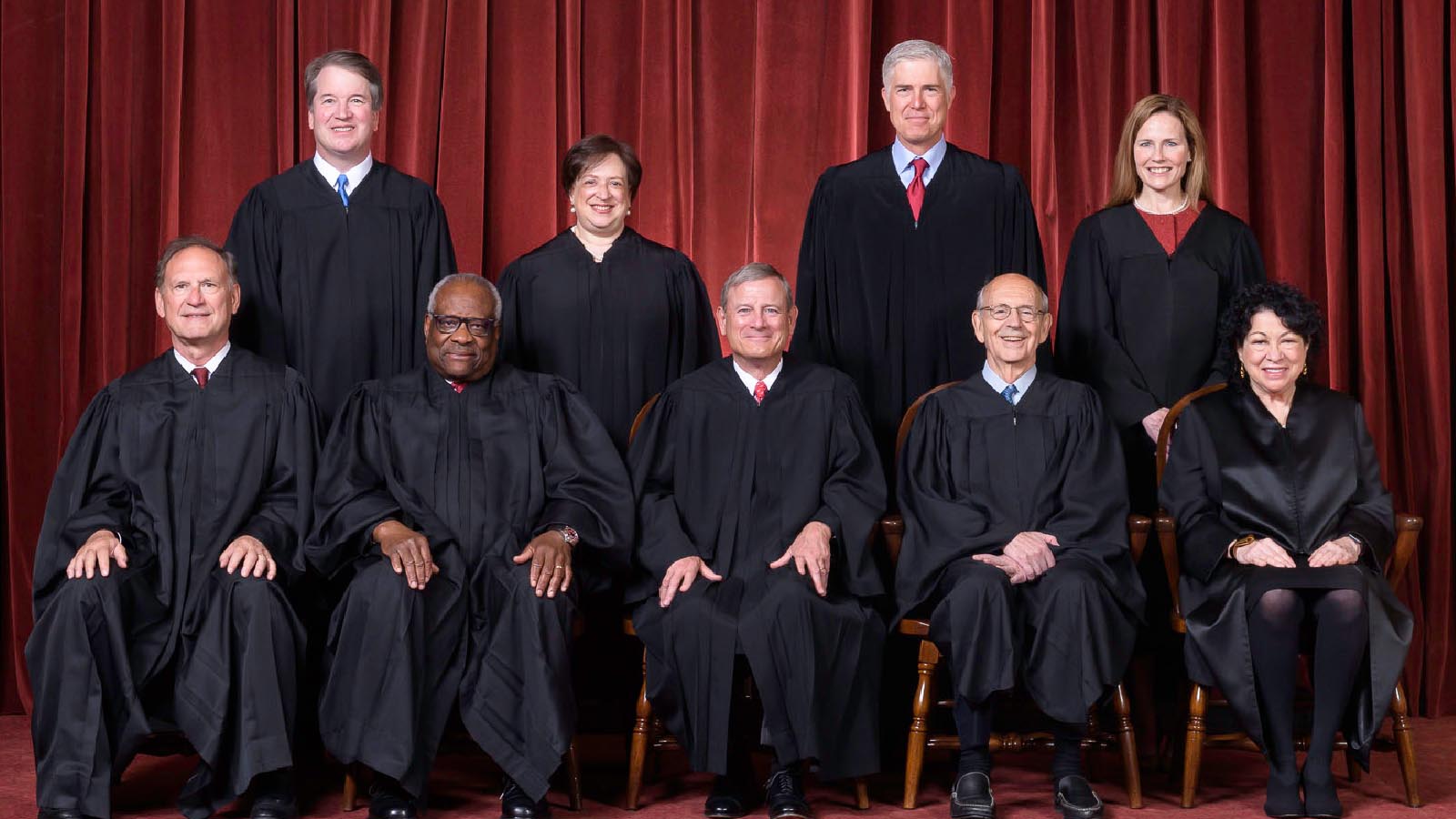by TTC
The Supreme Court on Wednesday refused to block a pro-life Texas law barring abortions after roughly six weeks’ gestation in a vote that deals a major blow to Roe v. Wade and could foreshadow how the court will handle abortion cases in the near future.
In the 5-4 decision, the high court declined to block the Texas law, determining that plaintiffs in the case failed to carry the burden of making a “strong showing” that it is “likely to succeed on the merits.” Chief Justice John Roberts joined the liberal wing of the bench in dissent.
The law, S.B. 8, bars abortions after a fetal heartbeat is detected, or as early as six weeks into pregnancy. But unlike similar laws passed in other states that have been blocked by courts, the Texas legislation does not provide criminal enforcement against abortion. Rather, it relies solely on private individuals for enforcement, empowering citizens to file civil lawsuits against anyone who performs an abortion or “aids and abets” the procedure. It is this unusual legislative design that makes the law difficult to challenge.
The law went into effect at midnight Wednesday after the Supreme Court initially declined to rule on an emergency request to block the law. Democrats across the state and country immediately became unhinged, lamenting that the law unjustly sidesteps legal precedent for abortion established by Roe v. Wade and Planned Parenthood v. Casey.
Women in Texas reportedly flocked to abortion clinics into the late hours Tuesday night to seek abortion procedures before the law took effect. Planned Parenthood and Whole Women’s Health, two abortion providers involved in the case, claimed the law has caused “chaos on the ground.”
In their emergency appeal to the Supreme Court, the plaintiffs argued that the new law will “immediately and catastrophically reduce abortion access in Texas, barring care for at least 85 percent of Texas abortion patients (those who are six weeks pregnant or greater) and likely forcing many abortion clinics ultimately to close.”
But in a brief ruling issued on Wednesday, a majority of the Supreme Court’s justices disagreed. The ruling stated that abortion providers “raised serious questions regarding the constitutionality of the Texas law,” but did not adequately address “complex and novel” procedural questions presented by the case.
Such questions included whether or not state officials and pro-life activists would enforce the law in a way that would permit the court’s intervention, NBC News reported.
Additionally, the court did acknowledge, “This order is not based on any conclusion about the constitutionality of Texas’s law, and in no way limits other procedurally proper challenges to the Texas law, including in Texas state courts.”
Nevertheless, Justice Sonia Sotomayor, writing in dissent, called the court’s decision “stunning.”
“Presented with an application to enjoin a flagrantly unconstitutional law engineered to prohibit women from exercising their constitutional rights and evade judicial scrutiny, a majority of Justices have opted to bury their heads in the sand,” she claimed.
This fall, another major showdown over abortion rights is set to come before the Supreme Court as the court takes up Dobbs v. Jackson Women’s Health Organization.
The case, which concerns Mississippi’s 15-week abortion ban, essentially asks the Supreme Court to re-evaluate the constitutionality of the fetal viability standard. Under current precedent, states are prohibited from banning abortions before a fetus is able to survive outside the womb, generally considered to occur at 22 weeks.
A decision in favor of Mississippi could lead to a major rollback of abortion rights in the country. Based on the court’s decision on the Texas law, such a ruling at least appears possible.



